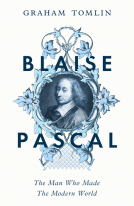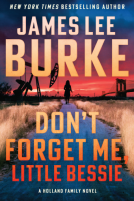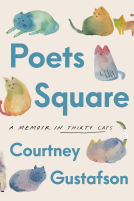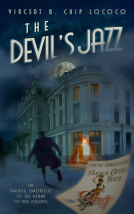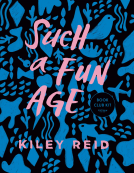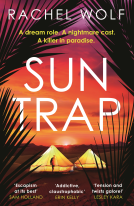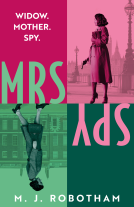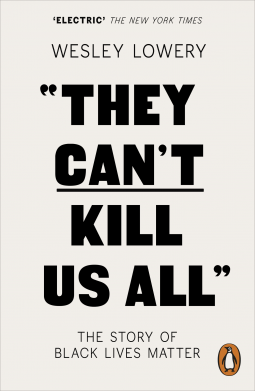
They Can't Kill Us All
The Story of Black Lives Matter
by Wesley Lowery
This title was previously available on NetGalley and is now archived.
Send NetGalley books directly to your Kindle or Kindle app
1
To read on a Kindle or Kindle app, please add kindle@netgalley.com as an approved email address to receive files in your Amazon account. Click here for step-by-step instructions.
2
Also find your Kindle email address within your Amazon account, and enter it here.
Pub Date Jan 26 2017 | Archive Date Sep 05 2017
Penguin Books (UK) | Penguin
Description
**Winner of the Christopher Isherwood Prize for Autobiographical Prose**
'A devastating front-line account of the police killings and the young activism that sparked one of the most significant racial justice movements since the 1960s: Black Lives Matter ... Lowery more or less pulls the sheet off America ... essential reading' Junot Díaz, The New York Times, Books of 2016
'Electric ... so well reported, so plainly told and so evidently the work of a man who has not grown a callus on his heart' Dwight Garner, The New York Times, 'A Top Ten Book of 2016'
'I'd recommend everyone to read this book ... it's not just statistics, it's not just the information, but it's the connective tissue that shows the human story behind it. I really enjoyed it' Trevor Noah, host of Comedy Central's 'The Daily Show'
A deeply reported book on the birth of the Black Lives Matter movement, offering unparalleled insight into the reality of police violence in America, and an intimate, moving portrait of those working to end it
In over a year of on-the-ground reportage, Washington Post writer Wesley Lowery traveled across the US to uncover life inside the most heavily policed, if otherwise neglected, corners of America today.
In an effort to grasp the scale of the response to Michael Brown's death and understand the magnitude of the problem police violence represents, Lowery conducted hundreds of interviews with the families of victims of police brutality, as well as with local activists working to stop it. Lowery investigates the cumulative effect of decades of racially biased policing in segregated neighborhoods with constant discrimination, failing schools, crumbling infrastructure and too few jobs.
Offering a historically informed look at the standoff between the police and those they are sworn to protect, They Can't Kill Us All demonstrates that civil unrest is just one tool of resistance in the broader struggle for justice. And at the end of President Obama's tenure, it grapples with a worrying and largely unexamined aspect of his legacy: the failure to deliver tangible security and opportunity to the marginalised Americans most in need of it.
Advance Praise
'As a primer for the Black Lives Matter movement
and as a meditation on the death-grip that white supremacy has on the American
soul, "They Can't Kill Us All" is essential reading' - Junot Diaz, '2016 in Books', The New York Times
'Electric' - The New York Times
One of the Most Anticipated Books of Fall 2016 - Publishers Weekly
One of the Most Anticipated Books of Fall 2016- Elle
11 Fall Books We Can't Wait to Read - Seattle Times
A best book of fall 2016 - Boston Globe
One of Vulture's "7 Books You Need to Read this November"
Available Editions
| EDITION | Other Format |
| ISBN | 9780141986142 |
| PRICE | £9.99 (GBP) |
| PAGES | 256 |
Featured Reviews
 Lisa B, Reviewer
Lisa B, Reviewer
Black Lives Matter is an organisation that has been born out of the heinous - and quite frankly avoidable – prejudice that has happened towards people of colour in America. As a white person I know how lucky I am to not have to worry about my skin colour affecting the way that I am generally perceived by society. I don’t say that with necessary pride but with the privilege that a shockingly unjust history has provided society.
It is difficult due to my colour to ever really empathise with those who are affected on a day to day basis due to the corrupt and unfair policing system but I wanted to read this book because I support any cause that aims to eradicate racial profiling, racism or prejudice of any kind.
Wesley Lowery, an American journalist has documented the killings at the hands of the police in his non-fiction release They Can’t Kill Us All – The Story of Black Lives Matter. He does so with a sharp eye for detail, unwavering honesty and heartbreaking emotion. With his inside knowledge of activist groups and relationships with the family members of victims you get a rounded knowledge of what it feels like to be black in America.
At a time when politics seems at an all time low and when corruption seems at an all time high this book - They Can’t Kill Us All – The Story of Black Lives Matter – is all the more important.
They Can’t Kill Us All – The Story of Black Lives Matter by Wesley Lowery is available from 26th January 2017.
For more information regarding Wesley Lowery please visit his Twitter page (@WesleyLowery).
For more information regarding Penguin Books (@PenguinUKBooks) please visit www.penguin.co.uk.
I read this to learn more about Ferguson and the Black Lives Matter movement, and in that sense the book fulfilled its purpose, though I’m not sure I gleaned anything I couldn’t have just by paying more attention to contemporary news coverage. Still, it’s interesting to get a young black reporter’s perspective on the recent spate of police shootings – “few things move as slowly, under such a unique cloak of darkness, as an investigation into an officer-involved shooting.”
 Leslie G, Book Trade Professional
Leslie G, Book Trade Professional
Powerful collection of. voices and events that might engender depression. but for the author and other activist. voices set out in pages: intractable police racism is even more worrying when fascist climate further inculcated: this is strong stuff, riveting and moving.
 Nicki M, Reviewer
Nicki M, Reviewer
This was a distressing book to read, making me gasp in shock and horror as time after time the author wrote about the young black men gunned down by the police in America.I live in the UK and the only time I've seen armed police is at airports or outside Buckingham Palace. I can't believe that the officers who killed these black men haven't been brought to account because it's not considered a crime by the police unions! I despair that in the 21st century movements like Black Lives Matter still have to be formed because of the blatant racism that continues in this so called 'civilised world'!
I encourage anyone who is interested in social justice, civil rights and equality for all to read this.
Thanks to NetGalley and Penguin Books (UK) for my digital copy in exchange for a review.
 Toyin A, Reviewer
Toyin A, Reviewer
When I picked this book up, I worried that it would be the same old narrative borne out of bitterness and anger. I was wrong.
Amadou Diallo. Rodney King. Jena Six. Troy Davis.Trayvon Martin. Michael Brown. Black Lives Matter.
Wesley perfectly articulates the systematic abuse and murder of black men and women by the very institution empowered to protect and serve them. He writes in a sensible manner showing the his investigative journalism skills in his beautifully written book.
As a foreigner who is originally from Nigeria and now lives in England, it is a bit difficult to wrap my head around the persecution of Blacks in the USA...I just find it all scary and barbaric. Wesley chronicles the events that have led to the #BlackLivesMatter movement in a way that anyone, even a silly Foreigner like me, can understand.
The protests are ongoing and until there is a radical change in the treatment of Black Americans, these stories will be told. Yes, all lives matter but not all lives have been singled out and persecuted. Black Lives Matter is a statement that unfortunately has to be made.
Yes, maybe they were delinquents but is that a reason to rob a mother of her son/daughter? A child of his father/mother?
Black children are given “the talk” from childhood. No honey, it’s not the “birds and bees talk” that normal households had. Nah.
It is the “say yes sir to any officer you encounter”; or “always keep your hand on the wheel”; or”keep your wallet in the centre console so you never have to reach into your pocket and get shot like Diallo”.
Do other races have to give their kids this talk from the age of 9?
.
Rating: 4.5/5.
Favourite Quote: "The underlying theme of this set of warnings passed down from black parents to their children is one of self-awareness: the people you encounter, especially the police, are likely willing to break your body, if only because they subconsciously view you not only as less than, but also as a threat.”
.
Recommendation: If you have a hard time understanding the Black Lives Matter demonstrations in USA and the history of police brutality against minorities, this book is a great start. He writes with such empathy and incredible knowledge that you are forced to take him and his narrative serious. The police brutality and murder must stop. Placard carrying is no longer the only option.
 Janet B, Bookseller
Janet B, Bookseller
Washington Post journalist Wesley Lowery found himself at the heart of the nascent Black Lives Matter protests in Ferguson, Missouri, following the fatal shooting by police of Michael Brown. On the trail of the movement around the US over the following year, he confronts the brutal realities of policing in Black communities, and the white supremacy at the soul of America. Gripping, brilliantly written and driven by a righteous anger, books like this are urgently needed as we enter the era of Brexit and a Trump presidency, and face the rising tide of fascism emboldened by them.
This is not an enjoyable or easy book to read, at times it is downright depressing and horrifying. But it is a book that should be read and digested. A number of the killings covered in this book and the riots in Ferguson made it into the news here in Britain, so I was aware of there being a continuing problem with police in the USA shooting black people, and not being held accountable for their deaths. What I didn’t really grasp before reading this book, was how widespread and endemic this sort of racist behaviour still is, and not just in the Deep South.
The book doesn’t just cover the actual deaths of black people at the hands of the police and white people, but looks at the effects that the deaths have had on families and friends of the victims, and the wider black communities in the affected areas and the rest of the country. It looks at the different black rights activist groups, such as Black Lives Matter" that have emerged in response to these killings – their various aims and methods, and how they have evolved over the years. The book covers the riots born out of anger, frustration at the continuing inequality and the authorities’ disregard for the safety and dignity of black lives. The author was a reporter very closely associated with the events in Ferguson and the many subsequent killings elsewhere, and this book is a very personal record about the people and stories he got to know while covering the issue. It details how a reporter goes about doing his job, and the stresses that such a profoundly emotional issue place on the reporter as well as on the affected communities.
I can understand why a policeman might feel he needs to shoot, if he considers his life to be genuinely in danger, or if others around are in immediate and genuine danger – but why shoot someone running away after being pulled over for a traffic violation, or reaching into their pocket for a driving licence? Or even if the “criminal” lashes out at the policeman, is lethal force really necessary or justified? Whatever crime the person may have perpetrated, surely an immediate death sentence cannot be sanctioned.
When a policeman shoots someone he perceives to be a criminal, he is not just acting as an upholder of social order, but as a self-appointed judge, jury and – if the person dies – as an executioner. Once a person is dead, he has no chance of legal defence, appeal, rehabilitation or of making restitution. Mistakes can never be rectified post-mortem.
After about the tenth black death in the book, you feel that surely the police and authorities’ attitudes must change. And then there is another death, and another, and another … a few minor changes, a (very) few cops charged with murder – but not convicted – then another death, and another …
UK media coverage seems to be perpetually reporting on gun violence in America: massacres; accidents; shootings etc. In American TV shows and films everything always seems to be solved by firing a gun, and killing the perceived enemy. The US is a country where everyone, irrespective of mental stability or actual need, is able to legally buy and use a gun, where all police carry guns, and where the death penalty is still on the statute book. So, police shootings come across as “the American way” – the overt racial angle of the violence is somewhat masked. It seems that all life is cheap in the USA, but this book makes it very clear that black lives are considered even cheaper than others.
What is most worrying for me, is that this all happened under a black president, someone who was supposed to bring hope to the poor, the disenfranchised, and above all to the black communities. Now there is Trump, and soon it may not only be black lives that don’t matter to the powers that be, but also Mexican lives, Muslim lives, asylum seekers lives …
 Tracey S, Reviewer
Tracey S, Reviewer
Wesley Lowery is a national reporter for the Washington Post, and he found himself the lead reporter in Ferguson, Missouri on August 9th 2014 covering the killing of unarmed black youth Michael Brown by white police officer Darren Wilson and therefore unknowingly witnessing the birth of the #BlackLivesMatter social movement. Lowery sets out this book in four separate but intertwining sections, weaving back and forth from Ferguson, Missouri and Cleveland, Ohio (his home state) where he mainly focuses on the horrendous case of Tamir Rice being shot by police, and Baltimore, Maryland. The events and the corresponding uproar and protests are covered in great detail by Lowery, in a remarkably fair manner. This does allow the reader to feel the shock and the sadness, and the hope for the future of the movement’s achievements, but it doesn’t let in any really of the author’s personal reactions to the events relayed. It does read, unsurprisingly, like a sometimes dry newspaper article. It is a shame because I expected to be emotionally moved by this book and instead was more intellectually moved – which is not a criticism.
I feel like this is an extremely important and timely book to be reading in 2017.
4.5 stars
 Catalina S, Librarian
Catalina S, Librarian
A straightforward book. What you read in the synopsis is pretty much what you get. It’s the account of Wesley Lowery about his coverage of black deaths and the birth of Black Lives Matter movement. What I liked best is the insight into the journalistic procedure. I loved how he presented the way a journalist manages to learn information, to get access to certain people, to interview them. I loved his honesty about his vulnerability when he had to do very sensitive interviews, like maybe the mother of the dead person or when he had to ask the same stereotypical questions for the sake of being objective etc. I haven’t followed, nor checked his online presence and articles, so I cannot pronounce myself about his objectivity; but he does inject his personal emotions in this book, and I cannot rule that out, as it gives a bit of character. And again, that’s fine because in my view this book is a personalized experience, they way he has seen the protests and everything else, they way he felt at the time and how he feels upon recounting those events to you and me. I must underline that this book is in no way a truly objective view on the matter of police violence or the weight of race in killings committed by Police force, but mostly a one sided view of the events.
Wesley Lowery, reporter at the Washington Post, has deservedly been given immense praise for this book that investigates the origin and early days of the Black Lives Matter movement. A terrific blend of on-the-ground reporting, conversations with the friends and families of those black men and women killed by police across the USA, and interviews with the voices and emerging leaders of Black Lives Matter, Wesley paints a painful portrait of a nation confronting the reality of police violence and the racism that remains endemic in its society.
As a piece of non-fiction, this book could have been dry and inappropriately lacking in any emotion; as a Black man writing about this, Wesley risked overwhelming the narrative with personal experience. Incredibly, he has found the perfect balance as this is a skilfully written book that informs, gives context, but fundamentally gives voice and platform to those who have been aggrieved, wronged and oppressed.
Starting in Ferguson in 2014 with the murder of Michael Brown by Darren Wilson (Wesley is rightly as focused on naming the cops who killed the Black men and women, as he is in naming the victims) Wesley follows the dreadful spate of police killings of Black men and women, across the USA, over the next year - and the powerful spontaneous responses from Black communities in response. that led to the birth of BLM.
Why now? Wesley askeps throughout his work. Police have been killing Black men and women in the States for decades, so why now for BLM? What was it in these killings that was different? Wesley found an assumed answer of 'social media' and 'cameras' to be a bit lazy. Though undoubtedly playing a part, he found that communities became angry and engaged more as a result of media depiction of victims as 'asking for it' or 'deserving', misrepresentation of them, their behaviour, and their communities.
It is these nuances that mark the book out, to dig well beneath the surface, as well as Wesley's ability to delicately intertwine his own experiences of "the talk" and racism into his reporting.
And this book informs too. I learnt so much more about the complexities of the situation on the ground. Black Lives Matter was actually created, named, by three black queer women - something I had not realised - and the book looks at the difficulties as new, almost self-declared, leaders (often men) emerged in a movement that prided itself in its mass movement status and the active role of women. A sense of leadership and recognition being hijacked and assumed.
The book also looks at the challenges facing BLM versus other protests. Take for example the recent Women's March. Yes, that was peaceful, no, there were no arrests. The police worked with he demonstrators. Race plays a part in that, yes, (plenty of WW on the March) but the challenge for BLM is that it is protesting police violence, and the police don't see peaceful demonstrations against them as anything other than a threat. Their legal duty to allow and support peaceful demonstrations is complicated when the protest is against the police.
And then comes the very nature of peaceful action itself - if Black women and men abide by the law and STILL get attacked and killed by police, what incentive is there to remain peaceful?
So many important questions but this book is mostly one of explanation, answers and education. It is informative and offers a more complicated and more human story than the reports at the time.
Of course, you can't help but read this now in the context of Trump's victory - though this book was completed before November 2016. This book ends with a sense of, 'where do we go from here?' A great movement has started, but what now? Undeniably, that question is a hell of a lot more problematic now. It's hard to conceive of progress being made against institutional racism under an administration so steeped in white supremacy.
These are dark days and days where support for Black Lives Matter is critical and necessary. Whatever happens now though, this book will remain an extraordinary and powerful historical record of the origins of an immensely influential new organisation.
I was given this book, by the publisher, in exchange for an honest review. Sometimes wishes come true. At the beginning of the year, I had placed this book on the list of my most anticipated reads. I was going to order a copy when the publisher emailed me; asking me if I wished to be sent a copy. Of course, I said ‘yes’.
I was really looking forward to reading this book and I was not disappointed. This book explores the events surrounding the ‘Black lives matter’ campaign, as seen by someone who was actually there. Lowery’s tale begins when he was sent to cover a single death of one man, at the hands of the police, and then continues to tell the story of a story that just kept growing, as more police shootings were brought to light
Lowery tells us how a single commission, a week’s work, would lead to a grueling six month odyssey to capture the slaughter of black men and the campaign that sought to fight against the ever growing tide of deaths. On the way, he outlines: the actions of the police and their differing reactions to the ‘black lives matter campaign’; the individuals who made up that campaign and his role as a, Black African American, journalist covering this story.
This book is an insider view of a very important story. It is a valuable contribution to an important debate. It is a must read for anyone wishing to understand today’s America.
 Nicole A, Bookseller
Nicole A, Bookseller
A powerful and important book that manages to capture the origins of the Black Lives Matter movement as well as concisely provide a socio-political context for so much that has come to pass in America, and in turn, inspire such a movement.
Wesley Lowery also gives us an insight into what it is like to be a journalist covering these events and the struggle to remain objective in such an emotional and yet divided climate.
Lowery’s book is a great jumping off point for those trying to acquaint themselves with the movement as well as many years of unrest that preceded its origins. It is incredibly up to date, addressing the hopes and disappointments of the Obama administration. The book presents itself in a fairly linear and concise manner, and whilst very much an abridged detailing of these events, it is very upfront about the complexities the complexities of race relations in America. It is a fairly matter of fact writing style that does at times feature very poignant and human moments, brought together by those who often try to put themselves at the forefront of events, for better or worse, journalists. Moreover, it highlights the complexities of investigating a story that is deeply personal and also divisive.
 Steven P, Reviewer
Steven P, Reviewer
This is intense . The history of black lives matter showing why and how it happened.
The level of detail is at times dizzying which feels appropriate .
Lowery makes you feel overwhelmed which has to be the right thing. I this is important , interesting and well written .
Readers who liked this book also liked:
Vincent B. "Chip" LoCoco
Historical Fiction, Horror, Mystery & Thrillers
John Kotter; Holger Rathgeber
Business, Leadership, Finance, Nonfiction (Adult)
Kelly and Kristina Mancaruso
General Fiction (Adult), Mystery & Thrillers, Nonfiction (Adult)


